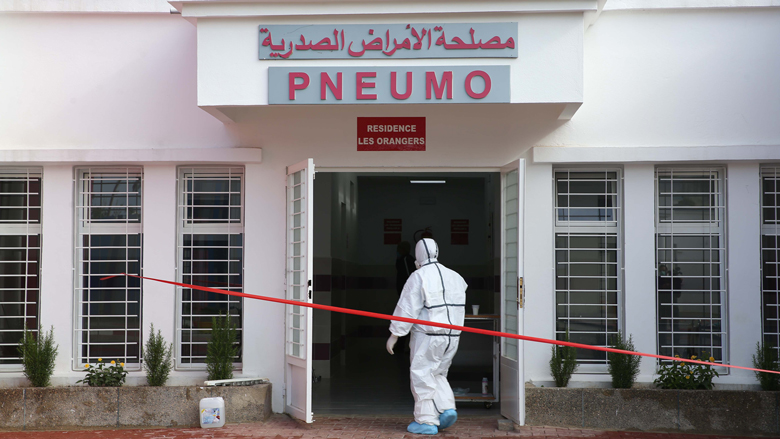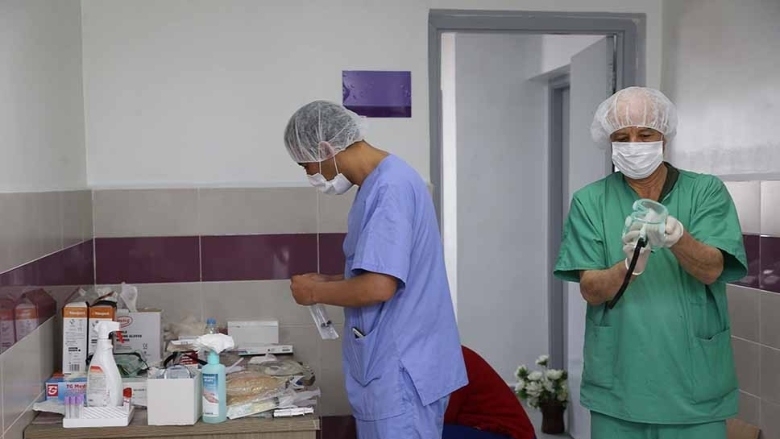The COVID-19 pandemic has posed multiple constraints on the Ministry of Health’s limited resources. The Ministry has had to handle an unprecedented sanitary crisis and show agility and proactiveness in managing the different facets of the pandemic, from COVID-19 patients’ treatment to increased epidemiological monitoring. Given the amplitude of the challenge, many feared that the system would collapse.
However, in facing these challenges, the Ministry of Health showed resilience by deploying an emergency response, developing a set of medical protocols for COVID-19 patients, and equipping hospitals across the country with medical supplies and personal protective materials, while rapidly scaling up hospital bed capacity and intensive care units. In addition, the ministry had to step up its communication effort by providing daily updates on the epidemiological situation, based on an electronic information system fed with regular laboratory testing results, enabling real-time epidemiologic reporting and informing evidence-based decision-making.
Today, over three months into the crisis, Morocco has one of the lowest fatality rates (deaths in proportion to total infections) in the world (less than 2.6%) and 90% of the cases have already recovered By imposing strict lockdown rules, Morocco managed to contain a wider spread of the epidemic, sparing the health system and its 9,200 public sector doctors from severe stress.
World Bank ramps up its support to the government of Morocco
As lockdown measures are gradually being eased across the territory, Morocco’s social interactions and economic activities are progressively returning to a semi-normal status. The virus threat remains ever-present, requiring close attention from public authorities to avoid a second epidemic wave. As of June 5, the Ministry of Health has confirmed over 8,000 cases of Covid-19 patients and will continue to enforce strict monitoring of the epidemiological situation through scaled up testing. In this critical phase, mass COVID-19 testing will be needed to ensure that the pandemic curve continues to flatten, enabling the economy to reopen and contributing to the containment of future waves.
While funding has been partially raised domestically to tackle the first phases of the crisis, the Ministry of Health will need additional resources to manage the coming phase. To this end, the World Bank has allocated new funding under an existing Primary Health Program in Morocco. The Bank reallocated US$13.01 million of undisbursed funds from the existing health Program and raised US$35 million from the World Bank Group’s Fast Track COVID-19 Facility (FTCF).
The additional financing will support enhanced disease detection capacities by providing technical expertise, laboratory equipment, and systems to ensure prompt case finding and contact tracing. The funding also aims to support Morocco in mobilizing surge response capacity through trained and well-equipped frontline health workers.
“This support to the government’s response to COVID-19 aims to limit the further spread of the virus and hence also the social and economic hardship caused by the pandemic” said Jesko Hentschel, World Bank Maghreb Country Director. “The Program’s contributions to improved case detection and treatment capacity will assist in mitigating the pandemic’s negative impacts on the economy and human capital accumulation”.
“We welcome the World Bank’s support which will help Morocco in its fight against the COVID 19 pandemic. This support will surely strengthen the country’s efforts to contain the outbreak’s impact on health, economy and society, under the enlightened guidance of His Majesty King Mohammed VI” said the Moroccan minister of Health, Khalid Aït Taleb.


